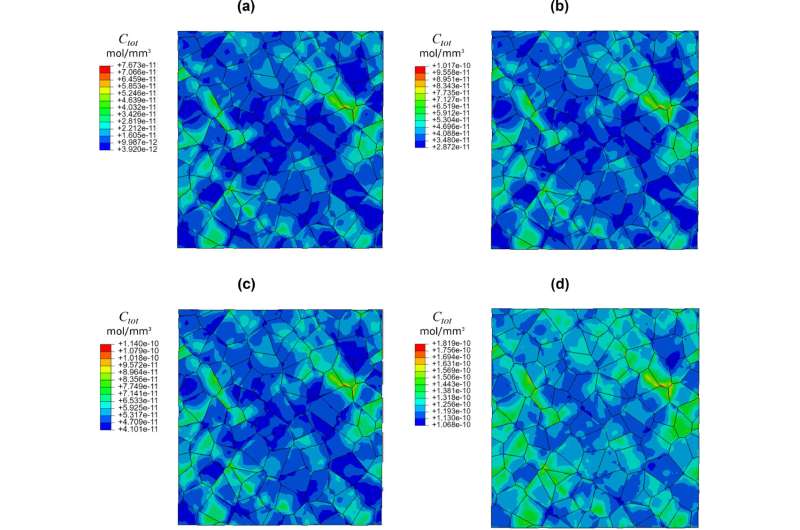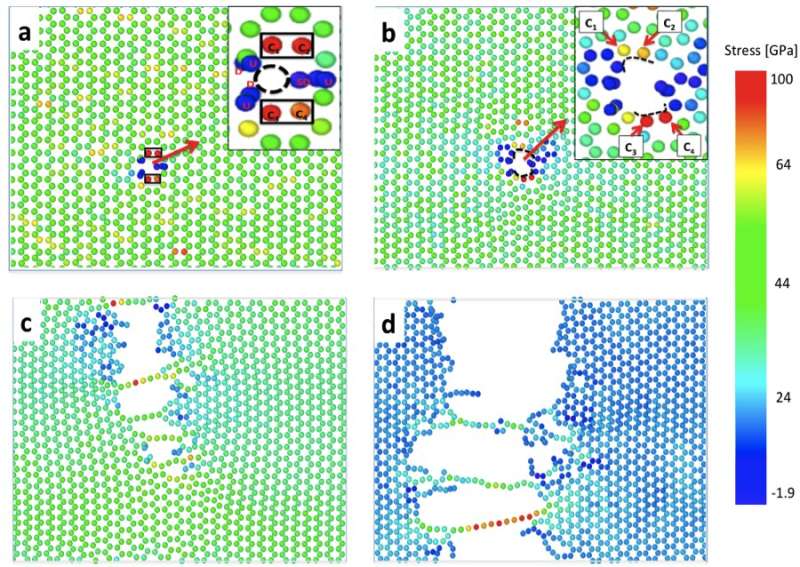'Cohesion researchers' unravel the mystery of hydrogen effects on materials

Hydrogen is considered an important energy carrier with the potential to reshape the energy landscape in the future. Distributing large amounts of hydrogen requires safe steel pipelines. Steel pipelines can become brittle due to hydrogen and can therefore break. Fascinated by this urgent problem, Carey Walters (MTT), Othon Moultos (P&E) and Poulumi Dey (MSE) joined forces and turned to the cohesion programme to work on this together.
They collaborated with Abdelrahman Hussein and Gagus Ketut to investigate the cause of the brittleness, and obtain new insights into the complex underlying physical phenomena. Their results aim to improve the storage, distribution and usability of hydrogen. The results are recently published open-access in Acta Materialia and the International Journal of Hydrogen Energy.
Othon Moultos, assistant professor engineering thermodynamics, says, "Poulumi, Carey and I have been working on the hydrogen storage and distribution issue for some time, albeit at different scales. Bringing together our expertise from the different fields of maritime technology, materials science and process technology seemed a logical move. As a result, we were able to investigate hydrogen and its distribution at a multi-scale level, ranging from the atomistic up to the macroscale. We gained useful knowledge about the efficient storage and resistance of high-strength steels to hydrogen embrittlement. Our research has also motivated the preparation of a new NWO proposal which is supported from important industrial stakeholders in hydrogen distribution. This cohesion project is certainly laying the foundation for a more extensive and enduring partnership."
Abdelrahman Hussein, postdoc in ship and offshore structures, says, "We used RVE and crystal plasticity to show how micromechanical stresses accumulate hydrogen at grain boundaries. We also show how increasing yield strength results in higher localization of hydrogen, increasing the susceptibility to damage. This virtual framework can increase our understanding of hydrogen embrittlement and speed up developing hydrogen resistant alloys."

More information: Gagus Ketut Sunnardianto et al. Efficient hydrogen storage in defective graphene and its mechanical stability: A combined density functional theory and molecular dynamics simulation study, International Journal of Hydrogen Energy (2020).
Abdelrahman Hussein et al. The effect of hydrogen content and yield strength on the distribution of hydrogen in steel: a diffusion coupled micromechanical FEM study, Acta Materialia (2021).
Journal information: International Journal of Hydrogen Energy
Provided by Delft University of Technology


















